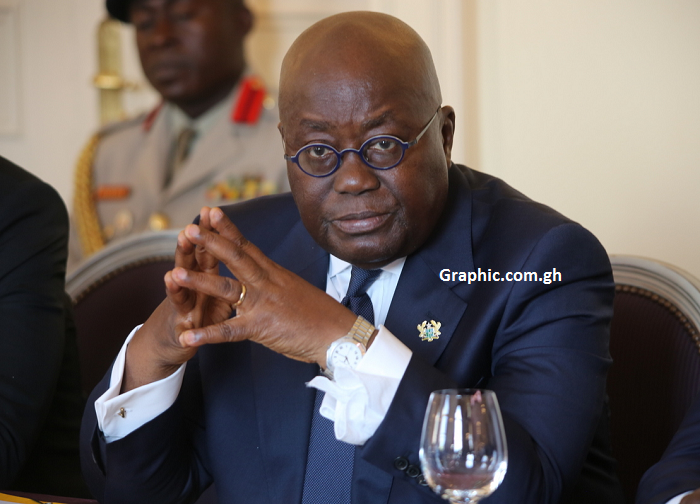
Strengthening Ghana, EU ties
President Nana Addo Dankwa Akufo-Addo is currently on a 12-day working visit to Scotland, Norway, the United Kingdom, Switzerland and Belgium.
He has already been to Oslo, Norway, on a working visit, at the invitation of the Norwegian Prime Minister, Erna Solberg.
As co-Chair of the Eminent Group of Advocates on the 2030 United Nations Sustainable Development Goals (SDGs) with the Norwegian Prime Minister, the President will also join other SDG advocates at a high-level meeting on food security and climate change.
Again, at the invitation of the European Conservatives and Reformists (ECR) Group, President Akufo-Addo will travel to Brussels, Belgium, on March 3 to address the Second ECR-Africa Summit on March 4 on: “Ghana’s economy and thriving democracy” and also meet with the leadership of the European Union (EU) to discuss issues pertaining to Ghana-EU relations.
Ghana and the EU recently held a political dialogue in Accra on the theme: “EU and Ghana: Partners for the Future”.
They discussed many issues of mutual interest, including the political situations of both Ghana and the EU, the implementation of the Economic Partnership Agreement (EPA), Ghana and the African Continental Free Trade Area (AfCFTA), ECOWAS matters, Ghana’s digital economy, anti-money laundering/combating the financing of terrorism and cooperation on regional, maritime and cyber security.
Other matters discussed were migration, the future of the cocoa industry, sustainable fisheries and Ghana’s readiness to include “green jobs” in its employment space.
The Daily Graphic, therefore, expects more from the dialogue, which, among others, is to foster strengthened linkages between the different aspects of Ghana-EU relations.
For instance, Ghana is expected to start liberalising its market for EU products by the first quarter of 2020 and this is expected to be concluded by 2029.
The EU and Ghana agreed on the final version of the Protocol on Rules of Origin and will adopt it officially through a written procedure in the first quarter of this year.
Under the Economic Partnership Agreement, all exports from Ghana, including agricultural or manufactured to the EU have entered the EU market duty-free and quota-free since January 2008, and in return, Ghana is expected to gradually and partially liberalise imports from the EU.
Undoubtedly, Ghana and the EU are entering into a new phase of deepening partnership.
This partnership has become even more paramount, especially as Ghana moves towards an agenda beyond aid.
Presently, the EU is Ghana's main market for the country’s agri-business products (cocoa beans and transformed cocoa, canned tuna, fruits, among others) and the EU supplies a large part of the equipment that contributes to economic growth.
Over the next 15 years or so, Ghana will liberalise 80 per cent of imports from the EU and this will involve industrial machines (pumps, generators, turbines and certain vehicles, including boats and tractors, and chemicals).
These are all inputs used by Ghanaian industries which are not produced locally.
The EU also supports Ghana's competitiveness through dedicated development cooperation programmes at national and regional levels.
As the largest multilateral development and trade partner, the EU and its member states currently finance about half of all official development assistance (ODA) received by the Ghanaian government.
We of the Daily Graphic are, therefore, quite satisfied that efforts to deepen Ghana and EU ties are picking up steam and that the parties involved are making good progress.
It is our conviction that the EPA will continue to become a platform for sustainable dialogue between the parties on matters related to trade and development.
It is also healthy to note that on a broader scale, the relationship between the EU and Africa continues to strengthen and improve.
We note with interest that the EU still wants to be closer to Africa and its relations with the continent are even becoming much stronger, in terms of multilateralism, the spirit of cooperation, peace and security.
